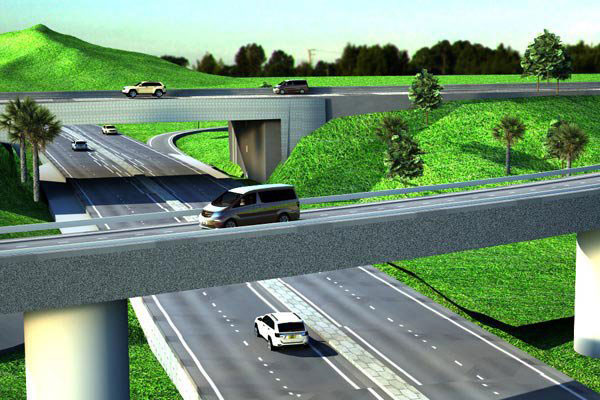Since 2015, Government has been in the initial stages of developing the Kampala-Jinja Expressway (KJE), a project anticipated to revolutionize traffic flow. Nearly a decade later, the physical implementation of the project is yet to commence.
Jim Mugunga, the Head of Communications at the Ministry of Finance, Planning and Economic Development, highlights the primary challenge as the delay in securing the required $1.5 billion (5.65 trillion Ugandan shillings) amidst other competing priorities and diminishing fiscal space.
“Preparatory work, including technical and traffic studies, legal and regulatory due diligence, and financial analysis, had been undertaken by the PPP Unit of the Ministry of Finance and other relevant stakeholders prior to 2020. However, administrative delays led to the project being put on hold,” Mugunga said.
Mugunga emphasizes the value of detailed and proven studies to attract international financing, underscoring the importance of an enabling investment climate for both public and private partners.
“Private partners are expected to contribute over $800 million (3 trillion shillings), while the government aims to mobilize $400 million (1.5 trillion shillings) in concessional finance to ensure project viability,” he said.
He further attributes the delay to the COVID-19 pandemic which disrupted progress, rendering previous studies and financial projections outdated. Additionally, resources which were earmarked for resettlement efforts were redirected to address urgent national emergencies. Mugunga also explains the need for updated financials to ensure the project’s bankability and sustainability over the long term.
Way Forward
Mugunga notes that the project’s optimal structure has been approved by Cabinet and Parliament, with funding secured from development partners such as the African Development Bank, European Union, and Asian Development Bank.
“The bidding process is currently underway, with a shortlist of four from eight pre-qualified bidders identified. Cabinet clearance has been granted to the Uganda National Roads Authority (UNRA) to proceed with the procurement process, signalling a renewed momentum in project implementation,” he said.
The Kampala-Jinja Expressway, structured as a Design, Build, Finance, Operate, and Transfer (DBFOT) project, forms part of the northern trade corridor from Mombasa in Kenya to Kigali in Rwanda, Burundi, and the Democratic Republic of Congo.
Under the DBFOT model, a private concessionaire will manage the expressway for a 30-year period, with toll rates set by the government. In return, the concessionaire will collect tolls and ensure operational performance standards are met, receiving a fixed fee from the government.
The anticipated increase in traffic underscores the urgency of addressing capacity restrictions, particularly between Kampala and Mukono, to alleviate congestion and improve travel time reliability.


